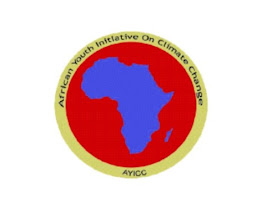Reach Out Programme Report
REACH OUT
PROGRAM REPORT
Date: 28th July
2013
Venue: Watoto Wema
Children’s home, Rwai.
Report prepared by: Gladys N. Gatiba
BACKGROUND
African
Youth Initiative on Climate Change (AYICC) is a network of young people that
has continually created awareness on climate change impacts and building
capacities of the community and fellow youths to increase resilience and
adaptation to these changes. This has been effected through various training
camps, conferences and campaigns e.g. Green Economy and Agribusiness training,
National Youth Climate Change Conferences (NYCC) and Rauka ama Hatuta survive
and the Road to Durban campaign respectively among others. Among its other
initiatives includes the Reach Out Programs (R.O.P); this involves supporting
children homes through mentorship, financial and material support from AYICC
members. The financial contributions are made during our Wednesday weekly
meetings and are used to purchase food and other items needed by the children
homes.
WATOTO WEMA CHILDREN
HOME
In
the past three years, AYICC has supported Watoto Wema Children Home located in Rwai.
The home has approximately 46 residential children that range between 6 to 17
years of age; several others receive financial support for their education from
their respective families’ homes. The children either come from economically
challenged families or have no parents or guardians to care for them.
On
the 28th July 2013 seven AYICC members visited the home to spend
time with the children, they used this opportunity to interact through games
and other fun activities and also mentor them. This brightened the children’s
faces and hopefully their hearts; they all came out to play the various singing
games led by our members. This made it super fun!
 |
| Sweets galore |
 |
| Juice galore |
Members
contribution and pledges during our weekly meetings on Wednesdays amounted to
KSH 5600 this was used to buy 50kg sack of rice KSH 2800@,20 litres of cooking
oil @ KSH 2230, two packets of sweets @ KSH 400 and their transport to the home
@ 200.
SUSTAINABLE PROGRAMME
The
visit was also a reconnaissance study for viable long term projects that can
sustain the home hence reduce its dependence on external financial support that
has in the past been unreliable. The team established that there had been a
poultry project carried out and has failed several times. The chicken died soon
after they were brought into the home due to illnesses that the care taker
suspected was acquired before they purchased them. They have put in efforts to disinfect
the poultry houses before they introduce more chicks but have proved futile.
They are however planning to use KENBRO chicks that are said to be more
resilient. They will be introduced to one of the remaining hens after it
hatches its own chicks hence allow it to take care of the KENBRO ones. One of
the older children has expressed interest in being in charge of the project;
this will ensure proper coordination of the project due the level of
vulnerability and need of care and attention of the chicks.
 |
| Members playing with the children |
 |
| The team discussing the poultry project |
WAY FORWARD
Marjory,
the children home director would advice on the way forward after they have
monitored the KENBRO chicks’ growth. This will guide AYICC intervention
mechanism towards a sustainable project in the home. AYICC ROP team which
comprises of Naomi Gichugu, Richard Omondi, Mercy Wanjiku, Alphaxard Ndun’gu
and Gladys Gatiba (Gasheri) will come up with a fundraising strategy for the project
as their await Marjory’s go ahead. The team is also coming up with alternative
projects in case the poultry project is proved unviable. There are therefore
seeking members who may be interested in this programme or have other project
ideas to join in.
CONCLUSION AND
RECOMMENDATIONS
Members
are urged to always join and also invite their friends whenever there are
visits to the home because these children require mentorship and one on one
interaction for psychological support due to their various past experiences and
challenges.
The
children and their director were very thank full of our continued support and
urged us to not to tire in our contributions however little they may seem, it
goes a long mile in supporting the children welfare.
“Thank
you all for your material and financial support and the time spent with the
children, you are always welcome to Watoto Wema family” Marjory remarks.
We appreciate the team
that visited the children on this day namely: Danny Wasonga, Vicky Chego, Clifford Omondi, Naomi Gichugu, Jeff
Shihebetsa, Richard Omondi, Alphaxard Ndung’u and Gladys N. Gatiba (Gasheri).
This
is how happy we left Watoto Wema children. Thank you all
Note: You can also download the report below:
R.O.P Report



Comments
Post a Comment